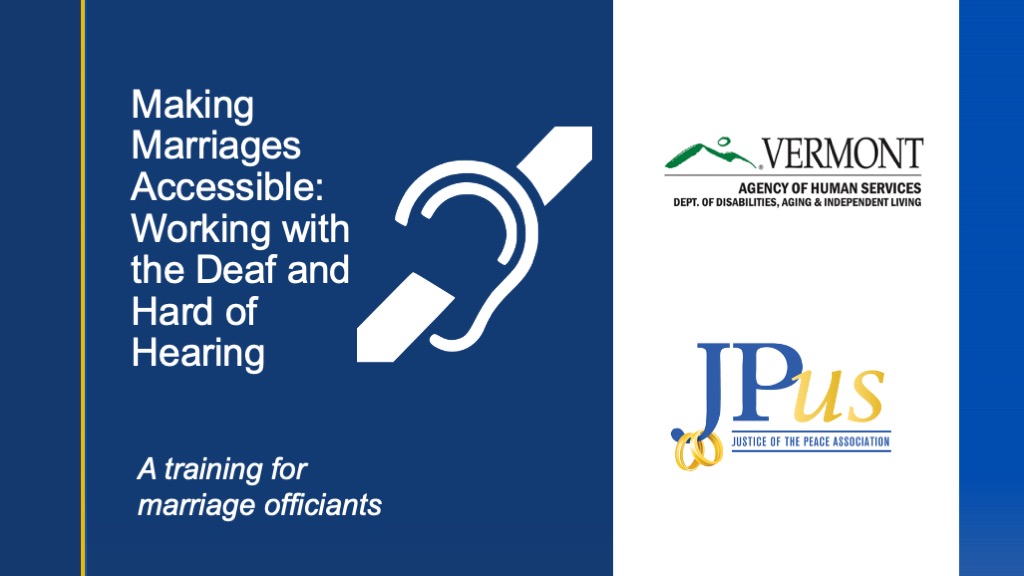This training will provide marriage officiants the information and resources needed to work successfully with the Deaf and hard-of-hearing – An underserved population. This program will not provide information on using sign language, but will instead offer guidance to improve communication techniques.
Learning Objectives
During this training we cover steps that officiants can do to make sure people with a hearing loss are able to fully participate in the ceremony. Notably, this includes the marital couple as well as in-person or virtual guests.
Participating in this webinar will increase your efficiency, help you grow professionally and personally, and make you a better marriage officiant.
- Enhance marketability. Expand officiants’ knowledge and skillset to better serve a broader population. Naturally, this makes training participants more attractive to potential clients.
- Improve access. Increasing the number of marriage officiants able to serve the Deaf and hard-of-hearing will make it easier for this population to have the marriage ceremony they desire. Furthermore, trained officiants assure Deaf clients, alleviating skepticism, nerves and fear.
- Ensure consent. Knowing how to communicate effectively with Deaf people gives confidence to the officiant that the union is consensual. This supports the officiant’s oath to the state, and is aligned with the Justice of the Peace Association’s Code of Ethics and Core Values.
Resources to Supplement this Training:
- Download the Resources document, below.
- Social Security benefit information is available in JPus' member support article, Marriage is a Legal Contract.

Loading...

